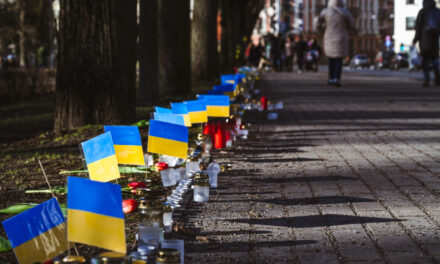 It’s typical of me to ask myself, “Where was God today?” or “How was God moving in my life?” I’m sure many who have developed their spiritual awareness through daily examens or contemplation can say where God might have been touching them. Equally so they can tell you where God was absent. But one question I have been trying to ask myself more consistently: Where is the evil spirit in this?
It’s typical of me to ask myself, “Where was God today?” or “How was God moving in my life?” I’m sure many who have developed their spiritual awareness through daily examens or contemplation can say where God might have been touching them. Equally so they can tell you where God was absent. But one question I have been trying to ask myself more consistently: Where is the evil spirit in this?
It’s a question probably not asked enough. Faith and spirituality tends toward the “silver lining”. In hard situations we tell people to “have faith” or that things happen for a reason. We try to explain away difficulty and credit God for the good things. Now Saint Ignatius doesn’t attempt to explain suffering and misfortune, but he does give some insight into understanding the good and evil spirits. This is called the Discernment of Spirits. We know that the good spirit gives us consolation (different from happiness) and moves us closer to God. It may sting our conscience when we know we’re getting far away from God. The evil spirit, on the other hand, does the opposite. “Life’s not all dandelions and sunshine,” I once said.
Now the dandelion metaphor may be a good one because even with dandelions and sunshine, the evil spirit can still lurk. Dandelions can be quite pretty on a spring afternoon in a grassy knoll, but dandelions are weeds. Their prettiness is overshadowed by their nuisance and difficulty to get rid of. This is characteristic of the evil spirit. Ignatius uses the simile of “an angel of light”, that is, the evil spirit first appears good. It looks pretty like a dandelion, just another colourful part of God’s creation. Dandelions even bloom into a white puff of seeds, fun to blow and make a wish. … But that makes the nuisance even worse by spreading the seeds to other places. They sprout up in your yard and through the cracks of your driveway. What started as something that seemed good turned out to be a nuisance.
We are often unaware of the evil spirit working this way because, on the surface, things seem normal. Only later when you look back and ask, “Where might have the evil spirit been working?” you discover that you justified a hurtful remark as “constructive criticism” or that quality time with your friends has become an excuse for not making time for self-care.
A Battle
Ignatius firmly believed that good and evil are constantly battling it out for our allegiance and that even evil is willing to appear good for those stakes. Jesus experienced this in the desert when the devil tempted him. Bill Barry, SJ says, “[the evil spirit] brings good and holy thoughts attractive to such an upright soul and then strives little by little to get his own way, by enticing the soul over to his own hidden deceits and evil intentions.”
Sounds scary, but when you put it in the language of dandelions, the key is noticing them, plucking them, and not blowing on them no matter how good it may seem.
>> Read Bill Barry, SJ’s article on the evil spirit or this introduction to the Discernment of Spirits.
Related posts:
- Longing for Justin Bieber
- Discerning Advent – Preparation (on discernment of spirits)
- Buddhism & Ignatian Spirituality: Parallels
Listen to an audio version of this post…
Music by Kevin MacLeod









Really love this analogy! Will share it with my catechists. Thanks for the words today.
thank you. I’ve been struggling to wonder what went wrong yesterday afernoon, following a morning where I found myself in a situation where plans went out of the window and I was intensely aware of being a channel for God’s healing and transforming love and power into a difficult situation. Reading this post, now I see what went wrong in the afternoon… how about a post on how to spot it when it’s happening so that the fall-out isn’t as bad?
I think the only way to recognise the evil spirit in the moment is to first be aware of how it works. Continuous reflection, looking back, and introspection can “train” you to become more aware of the good and evil spirits in the moment. The daily examen helps. Ignatius was said to have done an examen every five minutes – this basically means he was always briefly pausing during his day and discerning the spirits.
Thanks. Your blog led me to others and I’ve followed through several links and now understand so much better about the discernment of spirits. And the idea of moment-by-moment examen makes perfect sense. In another kind of churchmanship and spirituality I think it would be called “walking in the Spirit” or “keeping short accounts with God”. But the Ignatian way of thinking and talking about such things makes so much more sense to me than that ever did.